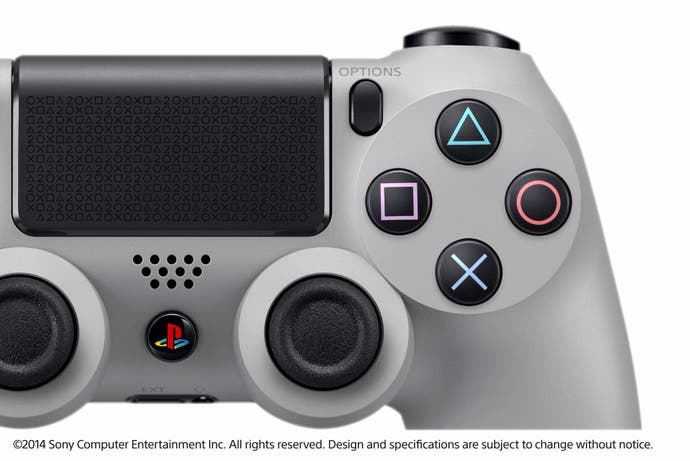We don't know why Sony's making PS4K, but there are plenty of reasons it shouldn't
Console me.
It's real, then, in case there was ever any doubt. Confirming what's been known in considerable detail for some time, Sony has acknowledged the existence of a new, more powerful PlayStation 4, choosing to do so via a glib admission in a Financial Times interview timed to clear the air ahead of next week's E3, where it won't be discussing the new console any further.
Perhaps it doesn't need to, when we already know the specs of the machine, details of how it will co-exist with the current PlayStation 4, and what we can expect of the experience. What that leaves, though, is the all-important question of why, the answer to which we'll be no closer to learning next week as execs look set to stick their heads in the sand. Maybe they simply don't have an answer, because now is as good a time as any to be more forthcoming with one. I've struggled to find one myself, and all I keep coming back to when considering this new PlayStation 4 are reasons why not - and why a mid-cycle console upgrade on this scale sounds like a pretty rotten idea.
History sets a robust precedent, of course, and looking back over the relatively brief lifespan of console gaming, it's hard to find any examples of mid-cycle upgrades that were anything other than a mistake. From the Famicom disk system to the notorious mess Mega Drive found itself in towards the end of its life, puffing and wheezing underneath all those unnecessary, divisive add-ons that sucked the momentum out of Sega's console business, it's a history of failures and disappointments too often brought about by hubris.
You'd forgive Sony for succumbing to over-confidence after the stellar start the PlayStation 4 has enjoyed - and it's true that PS4's success is such that the platform is already basically fail-proof. That success was brought about in part by Microsoft's stumblings, but also through the simplicity of the console's offerings. The PlayStation 4 in its first few years might have taken people by surprise, but it's been relatively straightforward to see how it's succeeded: here, quite simply, was a machine that played games more capably than its opposition, and did so ever so slightly cheaper, too. That message, however, is about to get a whole lot muddier.
Maybe the new PlayStation 4 is a result of factors elsewhere at Sony: a push to sell the 4K TVs essential to the business that was traditionally at the heart of the company. It wouldn't be the first time, either - the PlayStation 3's flirtation with 3D always felt more like an effort to hawk 3D televisions than a push for a new gaming frontier - yet while earlier dalliances have been relatively harmless, this feels like it could be an act of self-sabotage.
Why? Because it challenges the concept of what a console is, and not necessarily for the better. There's a reason I've always stuck with consoles, and why it's always been how I've chosen to play games, from Nintendo through Xbox and PlayStation. It's the promise of stability: of being able to plug a box into a television and play something I know is on an even keel. It's the promise of simplicity.
It's that promise that's kept me and many others away from PC gaming, and with the PlayStation 4K, one of the best reasons to stay on console is quickly eroded. It's that sensation when playing on PC that there's always one tweak that could be made, that you're always one quick dabble in the graphics menu away from the optimal experience, that takes me back to the warm stability of console. Taking one step towards an upgradeable PC model is one step further away from the age-old appeal of consoles - and if it comes to a straight fight, there'd be little reason to opt for a PlayStation, with its awful UI and storefront with amped-up prices, over a PC running Steam.
What's potentially the worst thing about PlayStation 4K, though, is that in an instant, Sony will create 40 million second-class citizens with vanilla PlayStation 4 consoles. They'll no longer be playing on the best, as was advertised to them not so long ago.
Maybe it's time for the old console model to move on, and traditionalists like myself need to move on with it. Perhaps the success of the PlayStation 4 has led to hungry eyes at Sony, and it's not the PC market it's looking to but instead the Apple model, whereby upgrades are rolled out on a regular basis as old hardware is slowly phased out. It's a model familiar enough to be globally accepted, but it's very much dependent on having an upgrade system in place for existing customers, as you get with a contract phone. Maybe Sony's got a bigger, smarter plan for it all, but it's certainly not sharing it with us just yet. The only thing that seems clear is that now would be a very bad time to buy a PlayStation 4 when there's so much uncertainty about its future.
How Sony goes about managing that message is going to be fascinating, which is why its silence right now and next week is so frustrating. It's hard to see much by way of positivity in the announcement, and dodging questions is no way to address the issue - it's up to Sony to convince us it's not on the brink of an almighty mistake.











